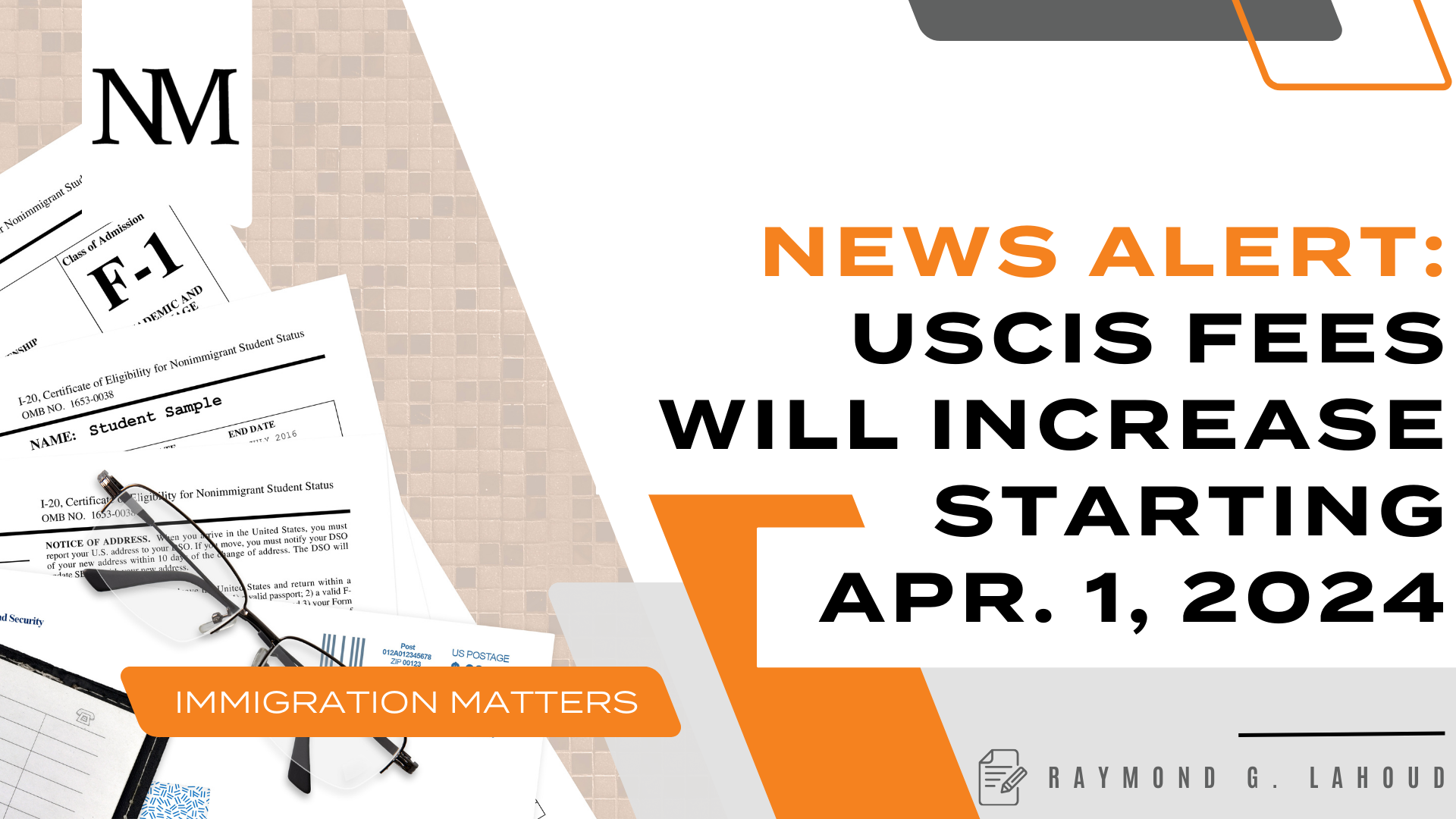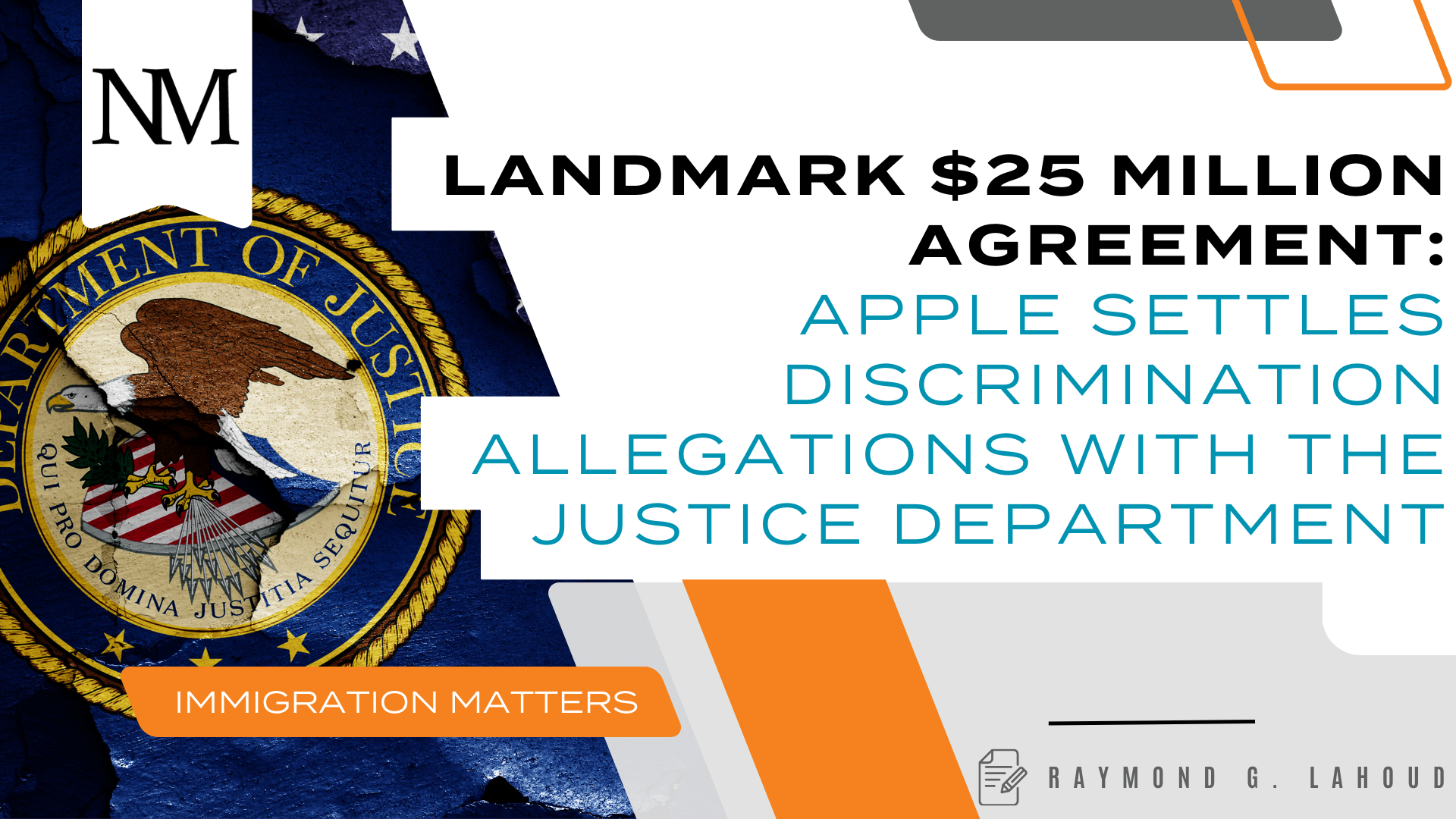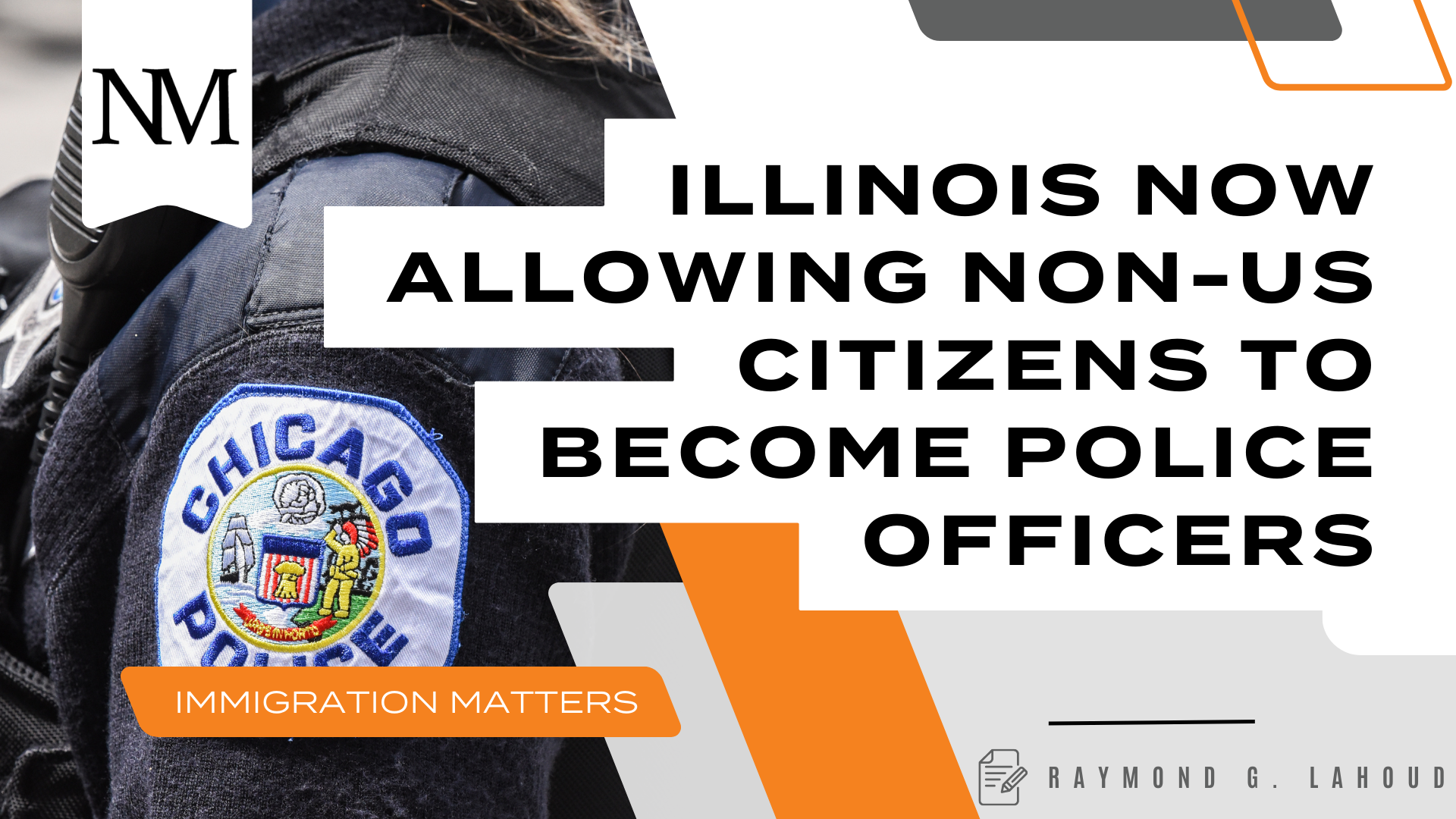DOJ Settles Immigration Discrimination Claim Against Minnesota-Based Staffing Agency

A recent announcement from the Department of Justice (“DOJ”) reports that a Minnesota-based staffing agency has settled allegations of discrimination against noncitizen workers. The settlement involves the resolution of allegations that the chain violated the law in the manner it verified its employees’ employment authorization. This announcement, like others, highlights the consequences for employers that fail to comply with the Immigration and Nationality Act (“INA”).
Allegations of Discrimination Against Noncitizen Workers
According to the DOJ announcement, an investigation determined that the company routinely required specific documents from newly hired noncitizen workers to prove their eligibility to work lawfully in the United States, while the company imposed no such requirements on U.S. citizen workers. Specifically, the DOJ determined the company was requiring lawful permanent residents to provide their Lawful Permanent Residence card (“green card”) and requiring some noncitizen workers to provide their Employment Authorization Documents in order to begin work. At the same time, the company would allow United States citizens to choose from the list of acceptable documents. Accordingly, the company imposed an additional burden on noncitizens during the onboarding process. The imposition of such a burden on noncitizens constitutes unlawful discrimination under the INA. For these reasons, the investigation concluded that the company engaged in unlawful and discriminatory practices involving the verification of work authorization pursuant to Form I-9, which is discussed below.
Under the terms of the settlement agreement, the company will pay a civil penalty of $250,000 and make $100,000 available for a back-pay fund to compensate victims. In addition, the company will train their staff on the anti-discrimination provisions of the INA, and review and update their employment policies. Finally, the company will be subject to quarterly reporting requirements to ensure ongoing compliance with the INA’s anti-discrimination laws.
The I-9 Verification Process
Form I-9, Employment Eligibility Verification, is a standardized form used by United States Citizenship and Immigration Services (“USCIS”) for employment verification in the United States. Mandated by the Immigration Reform and Control Act of 1986, Form I-9 is used to verify the identity and legal authorization of all employees who work in the United States. During the I-9 process, the employee must provide their employer with documentation that proves their legal status to work in the United States. Form I-9 provides a list of acceptable documentation, any of which is sufficient to establish employment authorization in the United States.
Anti-Discrimination Under the Immigration & Nationality Act
The anti-discrimination provisions of the INA, found at 8 U.S.C § 1324(b) and its associated regulations at 28 C.F.R. Part 44, prohibit discrimination based on citizenship status and national origin in the hiring, firing, recruitment, and referral of workers for a fee. These provisions also outlaw unfair documentary practices such as the one involved in this case. Finally, these laws make it illegal to retaliate or intimidate protected persons who file a discrimination-related complaint against the employer. Failure to comply with these laws can result in prosecution leading to civil penalties and other sanctions.
The DOJ Civil Rights Division’s Immigrant and Employee Rights Section (“IER”) enforces the anti-discrimination provisions of the INA. Under the Biden administration, enforcement of these laws has been steady.
To learn more about this blog post, or if you have any other immigration concerns, please feel free to contact me at rglahoud@norris-law.com or (484) 544-0022.




